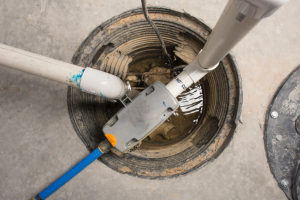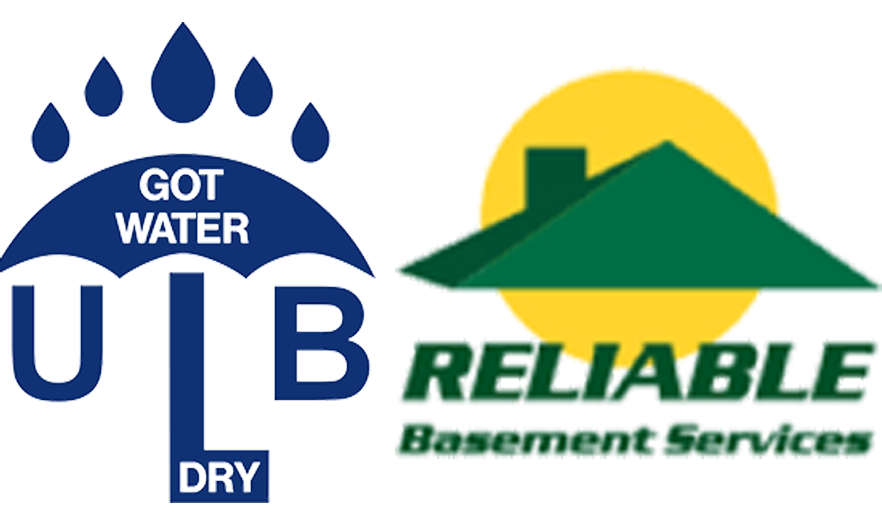
Basements can be a prime breeding ground for mold and mildew, especially in areas with high humidity and frequent rainfall — like Westmont, Illinois. These unwelcome guests can not only compromise the structural integrity of your home, but they also pose serious health risks to you and your family. Mold and mildew can trigger allergic reactions, respiratory issues, and even neurological problems if left unchecked.
Mold and mildew thrive in damp, dark environments, and a basement that’s prone to flooding or high moisture levels is the perfect habitat for these unwanted organisms. Neglecting to address the root cause of the problem can lead to a persistent and costly issue, as mold and mildew can spread rapidly and cause extensive damage to your home.
Below, this basement waterproofing company in Westmont, Illinois is going to explain how installing a sump pump can help you avoid mold and mildew growth in your home.
The role of sump pumps in preventing mold and mildew growth
Sump pumps are designed to detect rising groundwater levels and automatically activate to pump the water out of your basement and away from your home’s foundation. By keeping the basement dry, sump pumps help create an environment that is inhospitable to mold and mildew, effectively reducing the risk of these unwanted invaders taking hold.
Signs that indicate the need for a sump pump in your basement
As a homeowner, it’s essential to be aware of the signs that suggest your basement may benefit from the installation of a sump pump. Some of the most common indicators include:
- Frequent flooding or standing water in the basement, even after heavy rainfalls or snowmelt
- Musty odors or visible signs of mold and mildew growth
- Damp or humid conditions that persist even with dehumidification efforts
- Water seeping through the basement walls or floor
- Cracks or leaks in the foundation that allow groundwater to enter
If you’ve noticed any of these issues in your home, it’s time to consider hiring a basement waterproofing company in Westmont, Illinois to protect your property and your family’s health.
How sump pumps work and their different types
Sump pumps are relatively straightforward in their operation, but understanding the different types and how they function can help you make an informed decision when it comes to selecting the right one for your home.
At the heart of a sump pump system is a sump pit, a shallow hole dug into the basement floor, typically near the foundation wall. As groundwater or flood water accumulates in the pit, the sump pump automatically activates and pumps the water out of the basement and away from the home’s foundation.
There are two main types of sump pumps:
- Submersible Sump Pumps: These pumps are designed to be submerged in the sump pit, with the motor and other components encased in a waterproof housing. Submersible sump pumps are known for their quiet operation and are generally more durable than their counterparts.
- Pedestal Sump Pumps: Pedestal sump pumps are mounted above the sump pit, with the motor positioned on a pedestal. While they are typically less expensive than submersible models, pedestal pumps can be noisier and may have a shorter lifespan due to their exposure to the elements.
Choosing the right sump pump to eliminate mildew and mold growth
When it comes to selecting the right sump pump for your Westmont home, there are several factors to consider to make sure it effectively eliminates the risk of mold and mildew growth in your basement.
- Capacity and Horsepower: The size of your sump pit and the amount of water your basement is prone to accumulating will determine the appropriate pump capacity and horsepower.
- Automatic Activation: Look for a sump pump with an automatic activation feature, which will turn the pump on as soon as water begins to accumulate in the sump pit.
- Backup Power: In the event of a power outage, a battery backup system or a secondary, water-powered sump pump can provide the necessary redundancy to keep your basement dry and mold-free.
- Energy Efficiency: Consider the energy efficiency of the sump pump, as this can impact your long-term operating costs and your home’s overall environmental footprint.
- Durability and Warranty: Look for a sump pump with a solid reputation for reliability and a manufacturer’s warranty that gives you peace of mind in the long run.
By carefully evaluating these factors and working with a reputable basement waterproofing company in Westmont, Illinois, you can ensure that you select the perfect sump pump to keep your basement dry.
Do You Need a Basement Waterproofing Company in Westmont, Illinois?
If you’re concerned about the risk of mold and mildew growth in your basement, it’s crucial to partner with a professional basement waterproofing company in Westmont, Illinois. That’s where ULB-DRY Waterproofing enters the picture. We have the expertise and experience to assess your home’s specific needs, recommend the appropriate sump pump and other waterproofing solutions, and ensure that the installation is done correctly.
Contact us today to learn how we can help.





